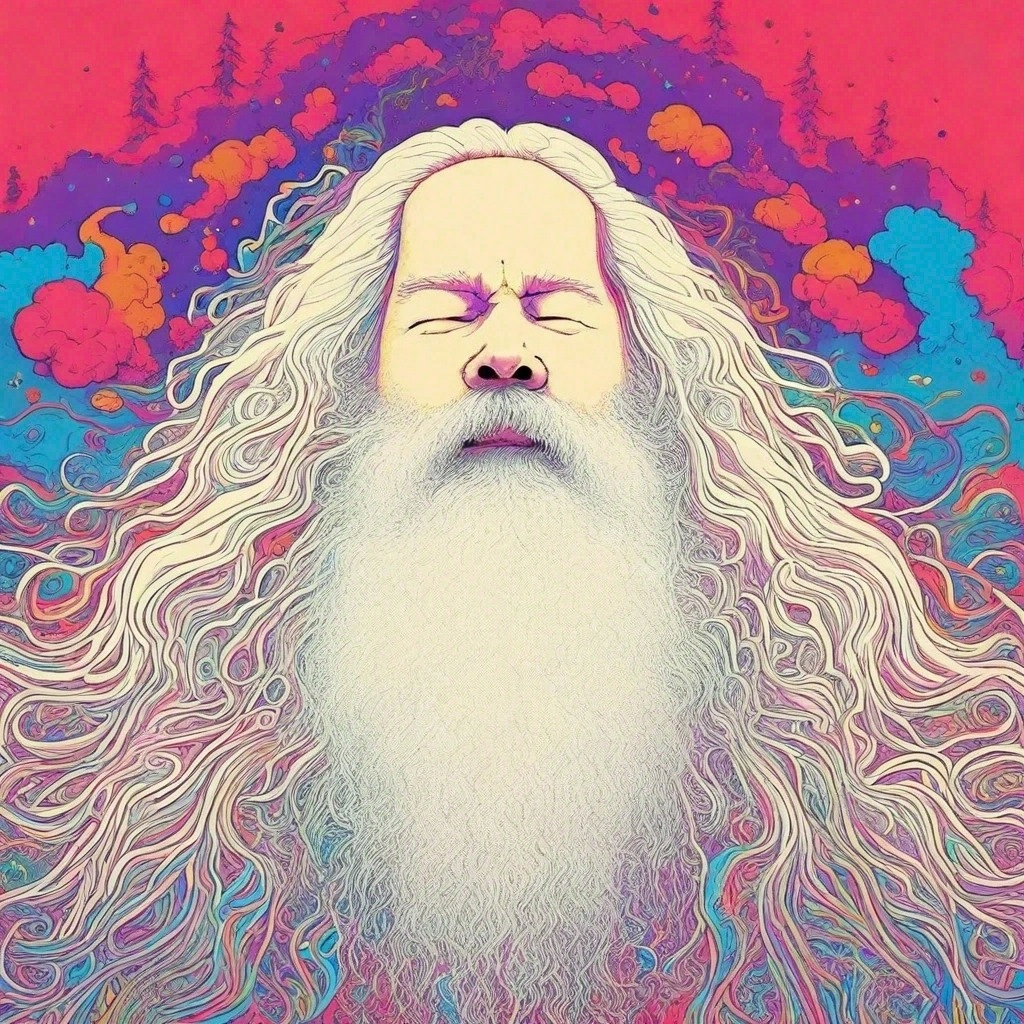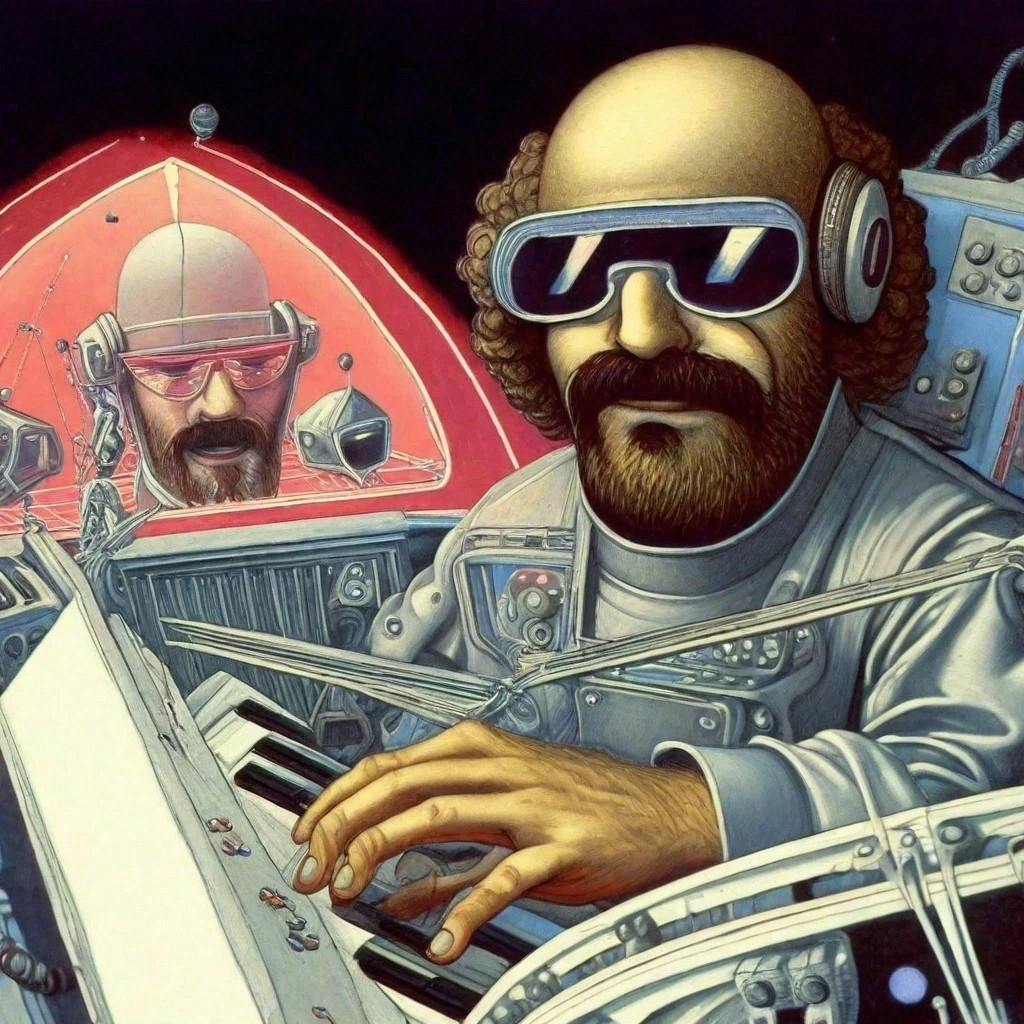Introduction
Rick Rubin, a name synonymous with innovation and influence in the realm of music production, stands as a towering figure in the industry. With a career spanning several decades, Rubin has left an indelible mark on the landscape of contemporary music, shaping the soundscape of numerous genres and elevating artists to legendary status. His unique approach to production, characterized by minimalist techniques and a profound emphasis on artistic authenticity, has redefined the boundaries of creativity in music.
Born on March 10, 1963, in Long Beach, New York, Frederick Jay Rubin—commonly known as Rick Rubin—embarked on his musical journey at an early age. From his formative years, Rubin displayed an innate passion for music, which would later blossom into a revolutionary career as one of the most renowned producers of his time. Despite lacking formal training in music production, Rubin’s intuitive understanding of sound and his relentless pursuit of sonic perfection propelled him to the forefront of the industry.
Throughout his illustrious career, Rick Rubin has collaborated with an eclectic array of artists spanning various genres, from hip-hop and rock to heavy metal and electronic music. His diverse portfolio includes work with iconic acts such as Run-DMC, Beastie Boys, Red Hot Chili Peppers, Johnny Cash, and Jay-Z, among countless others. Each collaboration bears the hallmark of Rubin’s distinct production style, characterized by stripped-down arrangements, raw instrumentation, and an unwavering commitment to capturing the essence of the artist’s vision.
Beyond his unparalleled success as a producer, Rick Rubin’s influence extends far beyond the confines of the recording studio. As the co-founder of Def Jam Recordings in the early 1980s, Rubin played a pivotal role in catapulting hip-hop into the mainstream, shaping the genre’s trajectory and paving the way for future generations of artists. His visionary approach to music production and his keen eye for talent have earned him widespread acclaim and cemented his status as a cultural icon.
In this article, we delve into the life and legacy of Rick Rubin, exploring the pivotal moments that have shaped his career, his enduring impact on the world of music, and the timeless artistry that continues to define his work. From his early years and influences to his remarkable career milestones and beyond, join us on a journey through the extraordinary life of one of music’s most enigmatic and revered figures.
Early Years and Influences
Rick Rubin’s journey into the world of music began in the vibrant cultural landscape of Long Beach, New York, where he was born on March 10, 1963. From a young age, Rubin demonstrated an insatiable curiosity and passion for music, immersing himself in a diverse array of genres and styles that would later shape his unique approach to production.
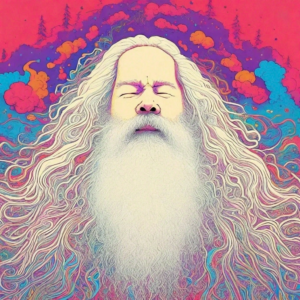 Growing up in the bustling metropolis of New York City, Rubin was exposed to a melting pot of musical influences, from the raw energy of punk rock to the infectious rhythms of hip-hop emerging from the streets of the Bronx. It was this eclectic tapestry of sounds that ignited Rubin’s imagination and fueled his desire to explore the boundless possibilities of music.
Growing up in the bustling metropolis of New York City, Rubin was exposed to a melting pot of musical influences, from the raw energy of punk rock to the infectious rhythms of hip-hop emerging from the streets of the Bronx. It was this eclectic tapestry of sounds that ignited Rubin’s imagination and fueled his desire to explore the boundless possibilities of music.
As a teenager, Rubin immersed himself in the burgeoning punk rock scene, attending concerts and soaking up the DIY ethos that characterized the movement. Inspired by the raw, unfiltered energy of bands like The Ramones and The Clash, Rubin began experimenting with his own musical endeavors, forming bands and honing his skills as a guitarist and songwriter.
In addition to punk rock, Rubin was drawn to the burgeoning hip-hop culture that was taking root in New York City during the 1970s and 1980s. Fascinated by the rhythmic cadence of rap and the innovative techniques of turntablism, Rubin found himself captivated by the creativity and expression inherent in the genre.
It was during this formative period that Rubin’s passion for music production began to take shape. Armed with a makeshift home studio and a relentless drive to push the boundaries of sound, Rubin began experimenting with production techniques, blending elements of punk rock, hip-hop, and other genres to create a signature style that defied categorization.
Throughout his early years, Rubin drew inspiration from a wide range of musical influences, from the raw intensity of punk rock to the rhythmic intricacies of hip-hop. It was this eclectic mix of influences that would ultimately define Rubin’s approach to production, allowing him to carve out a distinct niche in the world of music and cement his status as one of the most innovative producers of his generation.
In the next section, we will explore how Rick Rubin’s early experiences and influences laid the foundation for his groundbreaking work as a producer and set the stage for his remarkable career trajectory.
Artistic Evolution and Musical Identity
Rick Rubin’s artistic evolution and musical identity are deeply rooted in his relentless pursuit of authenticity and innovation. From his early forays into music production to his groundbreaking work with some of the most iconic artists of our time, Rubin’s journey has been characterized by a commitment to pushing the boundaries of creativity and redefining the sonic landscape.
In the early days of his career, Rubin’s approach to production was shaped by his experiences as a musician and his immersion in the vibrant music scenes of New York City. Drawing inspiration from the raw energy of punk rock and the rhythmic complexities of hip-hop, Rubin developed a distinctive style that emphasized simplicity, authenticity, and the power of raw emotion.
As Rubin’s career progressed, so too did his artistic evolution. With each new project, he pushed himself to explore new sonic territories and challenge conventional norms, constantly seeking out innovative ways to capture the essence of the artist’s vision. Whether working with established acts or emerging talents, Rubin approached each project with a spirit of collaboration and experimentation, always striving to elevate the music to new heights.
One of the hallmarks of Rick Rubin’s musical identity is his minimalist approach to production. Eschewing elaborate arrangements and studio trickery, Rubin favored a stripped-down aesthetic that allowed the raw emotion and authenticity of the music to shine through. By stripping away unnecessary layers and focusing on the essentials, Rubin was able to create recordings that felt immediate, intimate, and profoundly impactful.
In addition to his minimalist approach, Rubin’s musical identity is characterized by his keen ear for sonic detail and his ability to bring out the best in artists. Whether coaxing a soulful performance from a vocalist or crafting the perfect guitar tone, Rubin’s attention to detail and his relentless pursuit of sonic perfection have earned him a reputation as one of the most revered producers in the industry.
Throughout his career, Rick Rubin has consistently challenged himself and his collaborators to push the boundaries of what is possible in music. From his early days as a punk rock enthusiast to his groundbreaking work as a producer, Rubin’s artistic evolution has been defined by a tireless commitment to innovation, authenticity, and the relentless pursuit of sonic excellence.
In the next section, we will explore some of the career milestones and achievements that have helped to shape Rick Rubin’s enduring legacy in the world of music.
Career Milestones and Achievements
Rick Rubin’s career is studded with numerous milestones and achievements that have not only reshaped the landscape of contemporary music but also cemented his status as one of the most influential figures in the industry. From his early breakthroughs with Def Jam Recordings to his transformative collaborations with some of the biggest names in music, Rubin’s journey is marked by a series of groundbreaking achievements that have left an indelible mark on the world of music production.
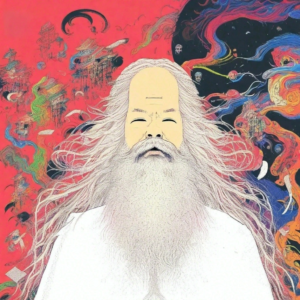 One of Rubin’s earliest and most significant career milestones came in the early 1980s when he co-founded Def Jam Recordings alongside Russell Simmons. Together, Rubin and Simmons played a pivotal role in catapulting hip-hop into the mainstream, signing seminal acts like Run-DMC, LL Cool J, and Public Enemy. Def Jam quickly became synonymous with the burgeoning hip-hop movement, and Rubin’s innovative production techniques helped to define the sound of a generation.
One of Rubin’s earliest and most significant career milestones came in the early 1980s when he co-founded Def Jam Recordings alongside Russell Simmons. Together, Rubin and Simmons played a pivotal role in catapulting hip-hop into the mainstream, signing seminal acts like Run-DMC, LL Cool J, and Public Enemy. Def Jam quickly became synonymous with the burgeoning hip-hop movement, and Rubin’s innovative production techniques helped to define the sound of a generation.
In 1986, Rubin co-produced the Beastie Boys’ debut album, “Licensed to Ill,” which became the first rap album to top the Billboard 200 chart. The album’s groundbreaking fusion of hip-hop and rock elements, coupled with Rubin’s raw and minimalist production style, helped to solidify the Beastie Boys’ place as pioneers of the genre and catapulted them to international stardom.
Throughout the 1990s and 2000s, Rubin continued to push the boundaries of music production with a string of iconic collaborations that showcased his versatility and innovation. His work with artists like Red Hot Chili Peppers, Johnny Cash, and Jay-Z yielded some of the most acclaimed and commercially successful albums of their respective careers, earning Rubin numerous accolades and awards in the process.
One of Rubin’s most notable achievements came in 2003 when he won the Grammy Award for Album of the Year for his work on Johnny Cash’s “American IV: The Man Comes Around.” The album, which featured stripped-down arrangements of classic songs alongside poignant original compositions, served as a poignant testament to Cash’s enduring talent and Rubin’s deft production touch.
In recent years, Rubin has continued to push the boundaries of music production with a diverse array of projects spanning multiple genres and styles. From his collaborations with artists like Kanye West and Adele to his work as co-president of Columbia Records, Rubin remains at the forefront of the industry, constantly innovating and inspiring the next generation of musicians and producers.
In recognition of his groundbreaking contributions to music, Rick Rubin has been honored with numerous awards and accolades throughout his career, including multiple Grammy Awards and inductions into the Rock and Roll Hall of Fame and the Hip Hop Hall of Fame. His enduring legacy as a visionary producer and cultural icon serves as a testament to the transformative power of music and the boundless possibilities of artistic expression.
In the next section, we will delve into Rick Rubin’s social and cultural impact, exploring how his work has influenced and shaped the broader cultural landscape.
Social and Cultural Impact
Rick Rubin’s influence extends far beyond the realm of music, encompassing a wide range of social and cultural spheres. Through his groundbreaking work as a producer, his visionary approach to music production, and his role as a cultural tastemaker, Rubin has left an indelible mark on the fabric of contemporary society, shaping the way we think about and interact with music, art, and popular culture.
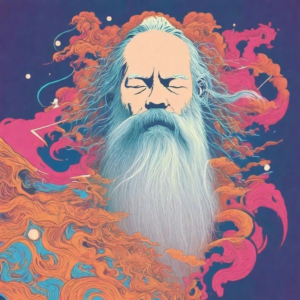 At the forefront of Rubin’s social and cultural impact is his role in shaping the trajectory of hip-hop music and culture. As a co-founder of Def Jam Recordings in the early 1980s, Rubin played a pivotal role in bringing hip-hop to the forefront of the mainstream, helping to elevate the genre from its origins in the South Bronx to a global phenomenon. Through his collaborations with seminal acts like Run-DMC, LL Cool J, and Public Enemy, Rubin helped to redefine the sound and aesthetics of hip-hop, introducing a raw and gritty aesthetic that resonated with audiences around the world.
At the forefront of Rubin’s social and cultural impact is his role in shaping the trajectory of hip-hop music and culture. As a co-founder of Def Jam Recordings in the early 1980s, Rubin played a pivotal role in bringing hip-hop to the forefront of the mainstream, helping to elevate the genre from its origins in the South Bronx to a global phenomenon. Through his collaborations with seminal acts like Run-DMC, LL Cool J, and Public Enemy, Rubin helped to redefine the sound and aesthetics of hip-hop, introducing a raw and gritty aesthetic that resonated with audiences around the world.
In addition to his contributions to hip-hop, Rubin’s work has had a profound impact on the broader cultural landscape, influencing artists and creatives across a wide range of disciplines. His minimalist approach to production, characterized by stripped-down arrangements and raw instrumentation, has inspired countless musicians and producers to embrace simplicity and authenticity in their own work, leading to a resurgence of interest in analog recording techniques and lo-fi aesthetics.
Beyond his work in the studio, Rubin’s influence can be felt in his role as a cultural tastemaker and trendsetter. From his distinctive personal style to his eclectic musical tastes, Rubin has helped to shape the zeitgeist of contemporary culture, influencing everything from fashion and art to film and television. His collaborations with artists outside the realm of music, including fashion designers, visual artists, and filmmakers, have further cemented his status as a cultural icon and a driving force in the creative industries.
Rubin’s impact on popular culture extends beyond his work as a producer and tastemaker, encompassing his role as a mentor and collaborator to a new generation of artists and musicians. Through his record label, American Recordings, Rubin has provided a platform for emerging talent to express themselves and reach a wider audience, nurturing a diverse and vibrant community of artists across genres and styles.
In recognition of his contributions to music and culture, Rick Rubin has been honored with numerous awards and accolades throughout his career, including multiple Grammy Awards and inductions into the Rock and Roll Hall of Fame and the Hip Hop Hall of Fame. His enduring legacy as a visionary producer and cultural icon serves as a testament to the transformative power of music and the enduring influence of artistic expression.
In the next section, we will explore the personal life of Rick Rubin, shedding light on the man behind the music and uncovering the personal motivations and experiences that have shaped his remarkable career.
Personal Life: Behind the Scenes
While Rick Rubin is best known for his groundbreaking work in the music industry, there is much more to the man behind the scenes than meets the eye. Despite his larger-than-life persona and legendary status as a producer, Rubin maintains a low-key and enigmatic presence, shying away from the spotlight and allowing his work to speak for itself. However, a closer look at Rubin’s personal life offers insights into the motivations, experiences, and values that have shaped his remarkable career.
Born on March 10, 1963, in Long Beach, New York, Frederick Jay Rubin—known to friends and colleagues as Rick—grew up surrounded by music and culture. From an early age, Rubin displayed a passion for creativity and innovation, immersing himself in the vibrant music scenes of New York City and forging lifelong friendships with fellow musicians and artists.
Despite his meteoric rise to fame and success, Rubin remains remarkably grounded and humble, eschewing the trappings of celebrity in favor of a simple and introspective lifestyle. He is known for his Zen-like approach to life and work, often spending hours in meditation and contemplation to find inspiration and clarity.
 Rubin’s personal life is characterized by a deep sense of curiosity and exploration, with interests ranging from spirituality and philosophy to art and literature. He is an avid reader and collector of rare books, with a particular passion for Eastern philosophy and mysticism. Rubin’s eclectic tastes and wide-ranging interests inform his creative process, allowing him to draw inspiration from a diverse array of sources and perspectives.
Rubin’s personal life is characterized by a deep sense of curiosity and exploration, with interests ranging from spirituality and philosophy to art and literature. He is an avid reader and collector of rare books, with a particular passion for Eastern philosophy and mysticism. Rubin’s eclectic tastes and wide-ranging interests inform his creative process, allowing him to draw inspiration from a diverse array of sources and perspectives.
Despite his private nature, Rubin has been open about his struggles with mental health and addiction, speaking candidly about his experiences with depression and substance abuse in interviews and public appearances. Through his music and his advocacy work, Rubin seeks to raise awareness about mental health issues and promote a message of hope and healing for those struggling with similar challenges.
In addition to his work in the music industry, Rubin is also a dedicated philanthropist, supporting various charitable causes and organizations focused on social justice, environmental conservation, and mental health awareness. He believes deeply in the power of music to bring about positive change in the world and is committed to using his platform and resources to make a difference in the lives of others.
Despite his many achievements and accolades, Rick Rubin remains refreshingly down-to-earth and focused on the things that truly matter: creativity, authenticity, and the pursuit of meaning and purpose. His personal life, characterized by a deep sense of introspection and a commitment to personal growth and self-discovery, serves as a testament to the enduring power of music to transform lives and inspire change.
In the next section, we will explore Rick Rubin’s extensive discography and creative works, tracing the evolution of his career through his groundbreaking collaborations and iconic productions.
Discography and Creative Works
Rick Rubin’s discography and creative works represent a diverse and illustrious career spanning multiple decades and genres. From his groundbreaking collaborations with hip-hop pioneers to his transformative productions with rock icons and everything in between, Rubin’s body of work stands as a testament to his unparalleled talent, innovation, and influence in the world of music production.
One of Rubin’s earliest and most influential collaborations came in the 1980s when he co-founded Def Jam Recordings alongside Russell Simmons. Together, they helped to shape the nascent hip-hop genre, signing seminal acts like Run-DMC, LL Cool J, and Public Enemy. Rubin’s production work on albums such as Run-DMC’s self-titled debut and LL Cool J’s “Radio” helped to redefine the sound of hip-hop and elevate the genre to new heights.
In 1986, Rubin co-produced the Beastie Boys’ debut album, “Licensed to Ill,” which became the first rap album to top the Billboard 200 chart. The album’s groundbreaking fusion of hip-hop and rock elements, coupled with Rubin’s raw and minimalist production style, helped to solidify the Beastie Boys’ place as pioneers of the genre and catapulted them to international stardom.
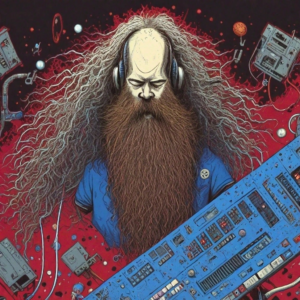 Throughout the 1990s and 2000s, Rubin continued to push the boundaries of music production with a string of iconic collaborations that showcased his versatility and innovation. His work with artists like Red Hot Chili Peppers, Johnny Cash, and Jay-Z yielded some of the most acclaimed and commercially successful albums of their respective careers.
Throughout the 1990s and 2000s, Rubin continued to push the boundaries of music production with a string of iconic collaborations that showcased his versatility and innovation. His work with artists like Red Hot Chili Peppers, Johnny Cash, and Jay-Z yielded some of the most acclaimed and commercially successful albums of their respective careers.
Rubin’s production work on Johnny Cash’s “American Recordings” series is particularly noteworthy, showcasing his ability to strip away the layers of production and capture the raw essence of an artist’s voice. Albums such as “American IV: The Man Comes Around” and “American V: A Hundred Highways” feature intimate, stripped-down arrangements that highlight Cash’s distinctive vocals and emotional depth, earning Rubin widespread acclaim and recognition in the process.
In addition to his work with established acts, Rubin has also championed emerging talent and pushed the boundaries of genre and style. His collaborations with artists like Kanye West, Adele, and the Avett Brothers have helped to introduce new sounds and perspectives to the world of music, further cementing Rubin’s reputation as a visionary producer and tastemaker.
In recognition of his groundbreaking contributions to music, Rick Rubin has been honored with numerous awards and accolades throughout his career, including multiple Grammy Awards and inductions into the Rock and Roll Hall of Fame and the Hip Hop Hall of Fame. His extensive discography and creative works serve as a testament to his enduring legacy as one of the most influential figures in the history of music production.
In the final section, we will reflect on Rick Rubin’s enduring legacy and historical significance, exploring the impact of his work on the world of music and the broader cultural landscape.
Fan Engagement and Community Building
Rick Rubin’s impact on the world of music extends beyond his groundbreaking productions and collaborations; it also encompasses his ability to cultivate meaningful connections with fans and build vibrant communities around his work. Through his innovative approach to fan engagement and his commitment to fostering a sense of belonging and connection among music lovers, Rubin has played a key role in shaping the way artists and audiences interact in the digital age.
One of the hallmarks of Rick Rubin’s fan engagement strategy is his emphasis on authenticity and transparency. Rather than relying on traditional marketing tactics or flashy promotional campaigns, Rubin has cultivated a loyal following by simply allowing his work to speak for itself. By focusing on creating music that resonates on a deep emotional level and eschewing the trappings of commercialism, Rubin has earned the respect and admiration of fans around the world.
In addition to his commitment to authenticity, Rubin has also embraced new technologies and platforms to connect with fans in innovative ways. Whether through social media, live streaming, or interactive digital experiences, Rubin has leveraged the power of technology to create immersive and engaging experiences that bring fans closer to the music and the creative process.
One of the most notable examples of Rubin’s fan engagement efforts is his work with the streaming platform Spotify. In 2015, Rubin curated a series of playlists for Spotify that showcased his eclectic musical tastes and introduced fans to a wide range of artists and genres. The playlists, which were accompanied by personal commentary from Rubin himself, provided fans with a unique glimpse into his creative process and musical influences, fostering a sense of intimacy and connection that resonated deeply with listeners.
 In addition to his digital initiatives, Rubin has also been actively involved in community building efforts within the music industry. Through his record label, American Recordings, Rubin has provided a platform for emerging artists to showcase their talents and connect with audiences on a global scale. By championing artists who push the boundaries of genre and style, Rubin has helped to foster a diverse and inclusive music community that celebrates creativity and innovation.
In addition to his digital initiatives, Rubin has also been actively involved in community building efforts within the music industry. Through his record label, American Recordings, Rubin has provided a platform for emerging artists to showcase their talents and connect with audiences on a global scale. By championing artists who push the boundaries of genre and style, Rubin has helped to foster a diverse and inclusive music community that celebrates creativity and innovation.
Beyond his work as a producer and label executive, Rubin has also been a vocal advocate for the importance of music education and mentorship. Through initiatives such as the Grammy Foundation’s “Music in the Schools” program, Rubin has worked to ensure that future generations of musicians have access to the resources and support they need to succeed. By investing in the next generation of talent, Rubin is helping to ensure that the legacy of music continues to thrive for years to come.
In conclusion, Rick Rubin’s approach to fan engagement and community building reflects his larger philosophy of authenticity, creativity, and connection. By prioritizing meaningful interactions with fans, embracing new technologies, and fostering a sense of belonging within the music community, Rubin has created a lasting legacy that extends far beyond his groundbreaking productions and collaborations. As the music industry continues to evolve, Rubin’s influence on fan engagement and community building will undoubtedly continue to shape the way artists and audiences interact for years to come.
Enduring Legacy and Historical Significance
Rick Rubin’s enduring legacy and historical significance in the realm of music production are immeasurable, marking him as one of the most influential figures in the history of contemporary music. Through his innovative approach to production, his groundbreaking collaborations with iconic artists, and his unwavering commitment to authenticity and artistic integrity, Rubin has left an indelible mark on the cultural landscape and reshaped the trajectory of multiple genres.
One of the most significant aspects of Rick Rubin’s enduring legacy is his pioneering work in hip-hop music. As a co-founder of Def Jam Recordings in the early 1980s, Rubin played a pivotal role in elevating hip-hop from its origins in the South Bronx to a global phenomenon. His collaborations with seminal acts like Run-DMC, LL Cool J, and Public Enemy helped to define the sound and aesthetics of hip-hop, paving the way for future generations of artists and producers.
In addition to his contributions to hip-hop, Rubin’s impact on the world of rock music is equally profound. His minimalist production style and emphasis on raw emotion and authenticity revolutionized the way rock albums were produced, influencing countless artists and bands across genres. Rubin’s collaborations with artists like Red Hot Chili Peppers, Johnny Cash, and Slayer yielded some of the most acclaimed and commercially successful albums of their respective careers, cementing his status as a visionary producer and tastemaker.
Beyond his work as a producer, Rick Rubin’s historical significance lies in his role as a cultural icon and tastemaker. Through his distinctive personal style, eclectic musical tastes, and commitment to pushing the boundaries of creativity, Rubin has helped to shape the zeitgeist of contemporary culture and inspire generations of artists and fans. His influence can be felt not only in the music industry but also in fashion, art, film, and beyond, underscoring the far-reaching impact of his creative vision.
Moreover, Rubin’s enduring legacy extends beyond his individual achievements to encompass his broader impact on the music industry as a whole. By championing artists who defy categorization and challenge conventional norms, Rubin has helped to foster a more inclusive and diverse music community that celebrates creativity and innovation. His commitment to authenticity and artistic freedom has inspired countless musicians and producers to push the boundaries of their craft and pursue their creative vision without compromise.
In recognition of his groundbreaking contributions to music, Rick Rubin has been honored with numerous awards and accolades throughout his career, including multiple Grammy Awards and inductions into the Rock and Roll Hall of Fame and the Hip Hop Hall of Fame. His enduring legacy as a visionary producer, cultural icon, and pioneer of sound serves as a testament to the transformative power of music and the enduring influence of artistic expression.
In conclusion, Rick Rubin’s enduring legacy and historical significance in the world of music production are a testament to his unparalleled talent, innovation, and influence. Through his groundbreaking productions, collaborations, and cultural contributions, Rubin has left an indelible mark on the fabric of contemporary culture and reshaped the trajectory of music history for generations to come.
Conclusion and Reflections
In the realm of music production, few figures loom as large or cast as long a shadow as Rick Rubin. Through his groundbreaking work with iconic artists across multiple genres, his innovative approach to production, and his unwavering commitment to authenticity and artistic integrity, Rubin has left an indelible mark on the cultural landscape and reshaped the trajectory of contemporary music.
From his early days as a co-founder of Def Jam Recordings, where he helped to elevate hip-hop from its origins in the South Bronx to a global phenomenon, to his transformative collaborations with rock icons like Johnny Cash and Red Hot Chili Peppers, Rubin’s influence spans generations and genres. His minimalist production style, characterized by stripped-down arrangements and raw emotion, revolutionized the way music was recorded and produced, inspiring countless artists and producers to embrace simplicity and authenticity in their own work.
Beyond his individual achievements, Rick Rubin’s legacy lies in his broader impact on the music industry and the cultural zeitgeist. As a cultural tastemaker and visionary producer, Rubin has helped to shape the way we think about and interact with music, inspiring generations of artists and fans to push the boundaries of creativity and embrace new possibilities. His commitment to artistic freedom and his willingness to challenge conventional norms have fostered a more inclusive and diverse music community, one that celebrates creativity and innovation in all its forms.
As we reflect on Rick Rubin’s remarkable career and enduring legacy, we are reminded of the transformative power of music to transcend boundaries, connect people, and shape the world around us. Through his groundbreaking productions, collaborations, and cultural contributions, Rubin has left an indelible mark on the fabric of contemporary culture and reshaped the trajectory of music history for generations to come. His legacy serves as a testament to the enduring influence of artistic expression and the timeless power of music to inspire, uplift, and unite us all.
